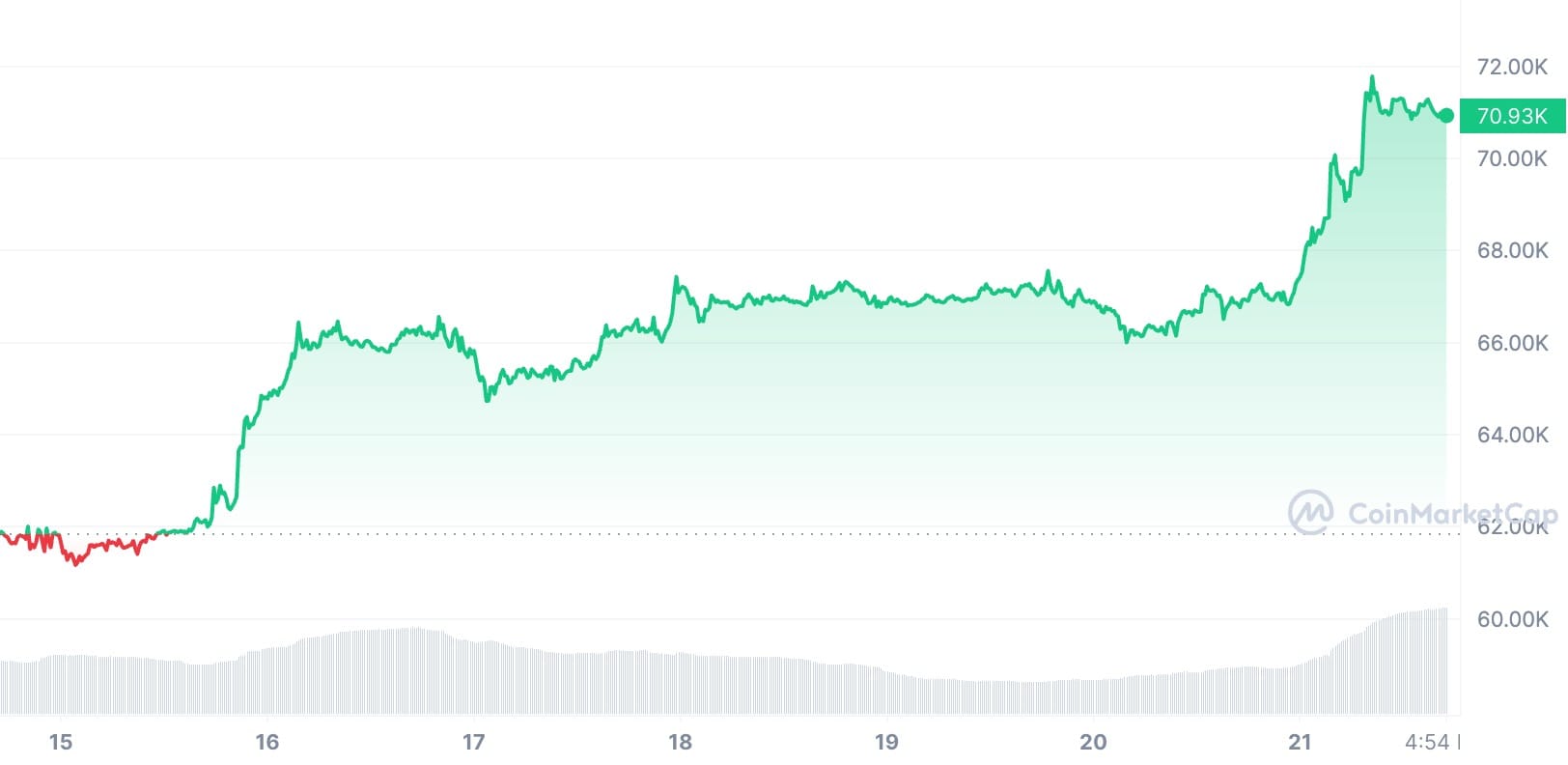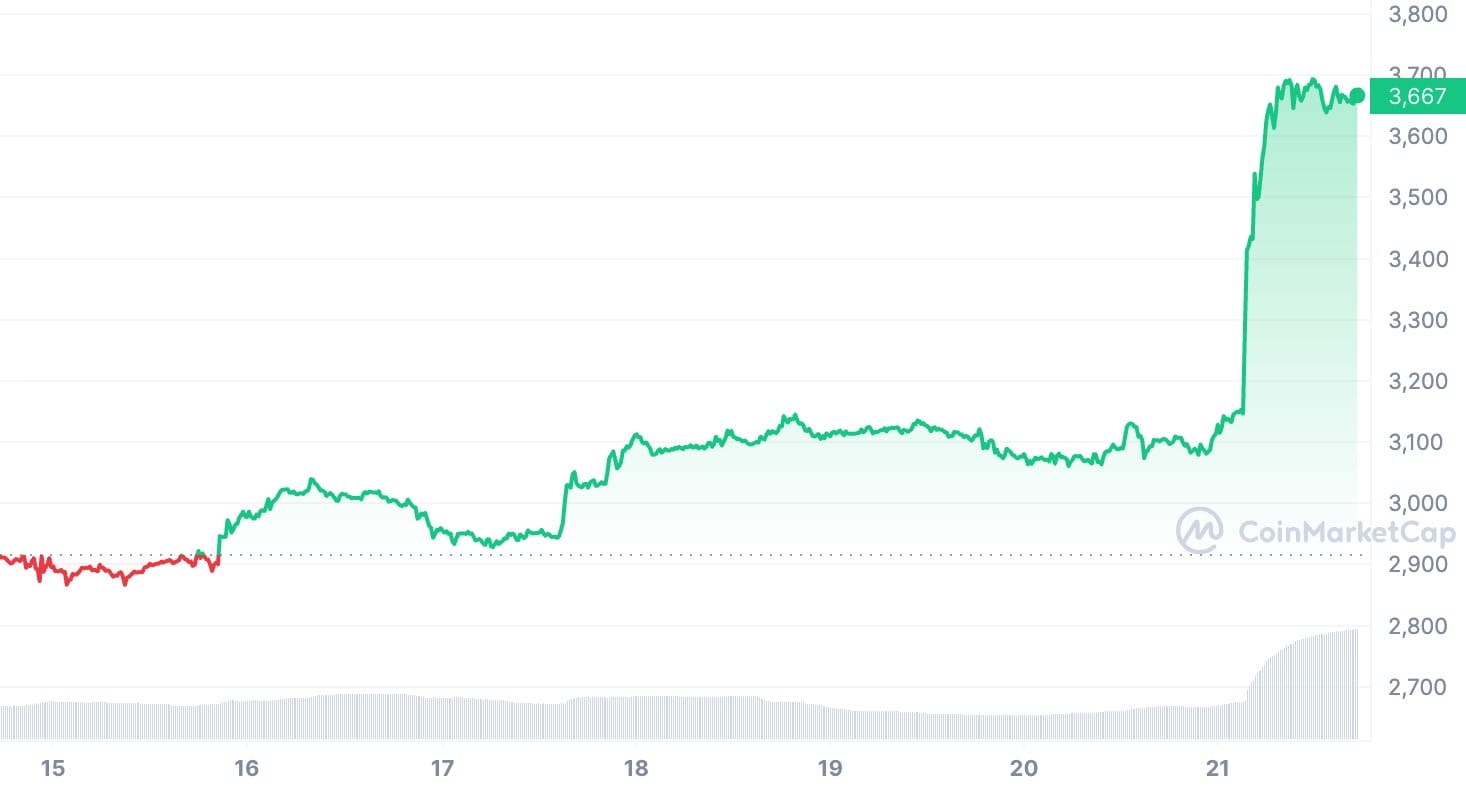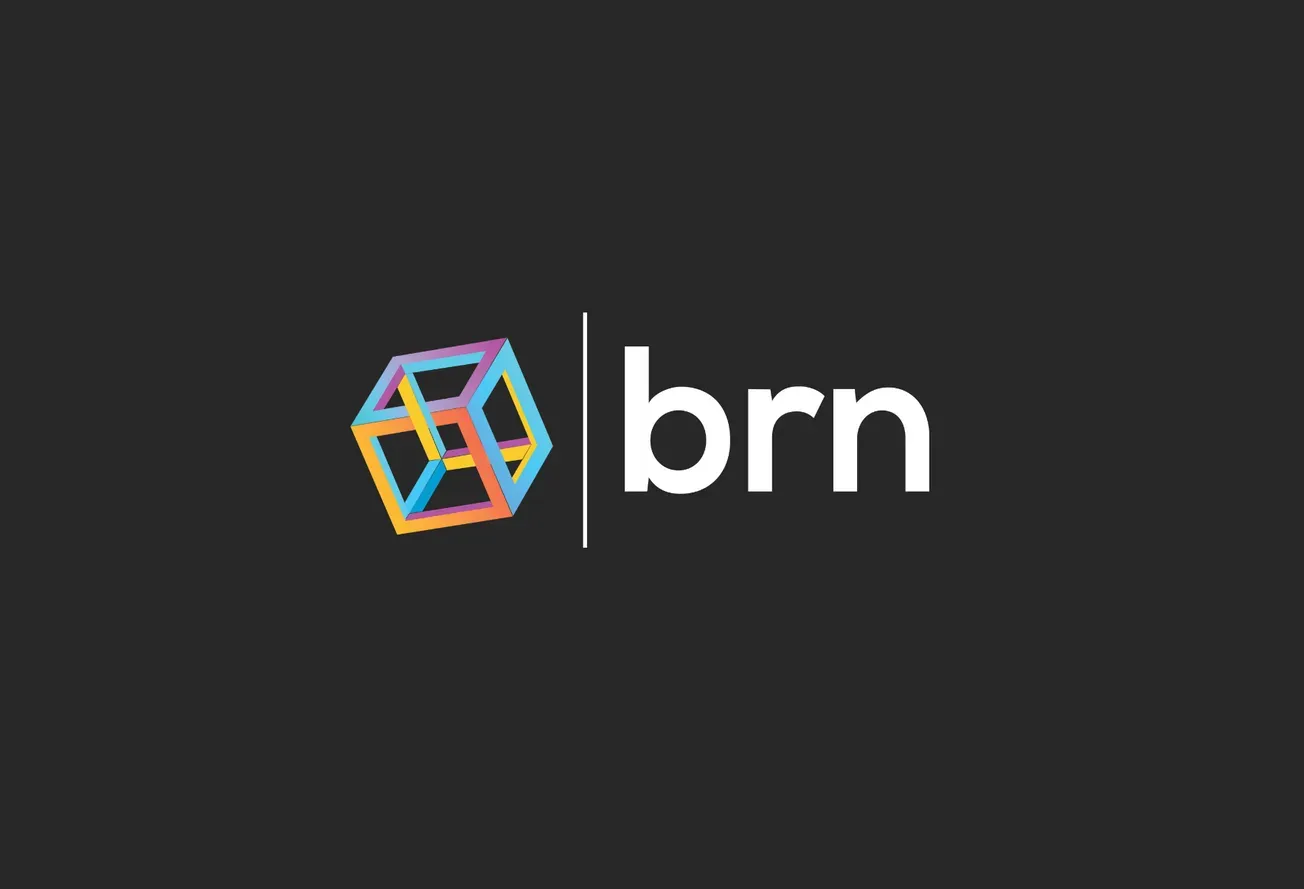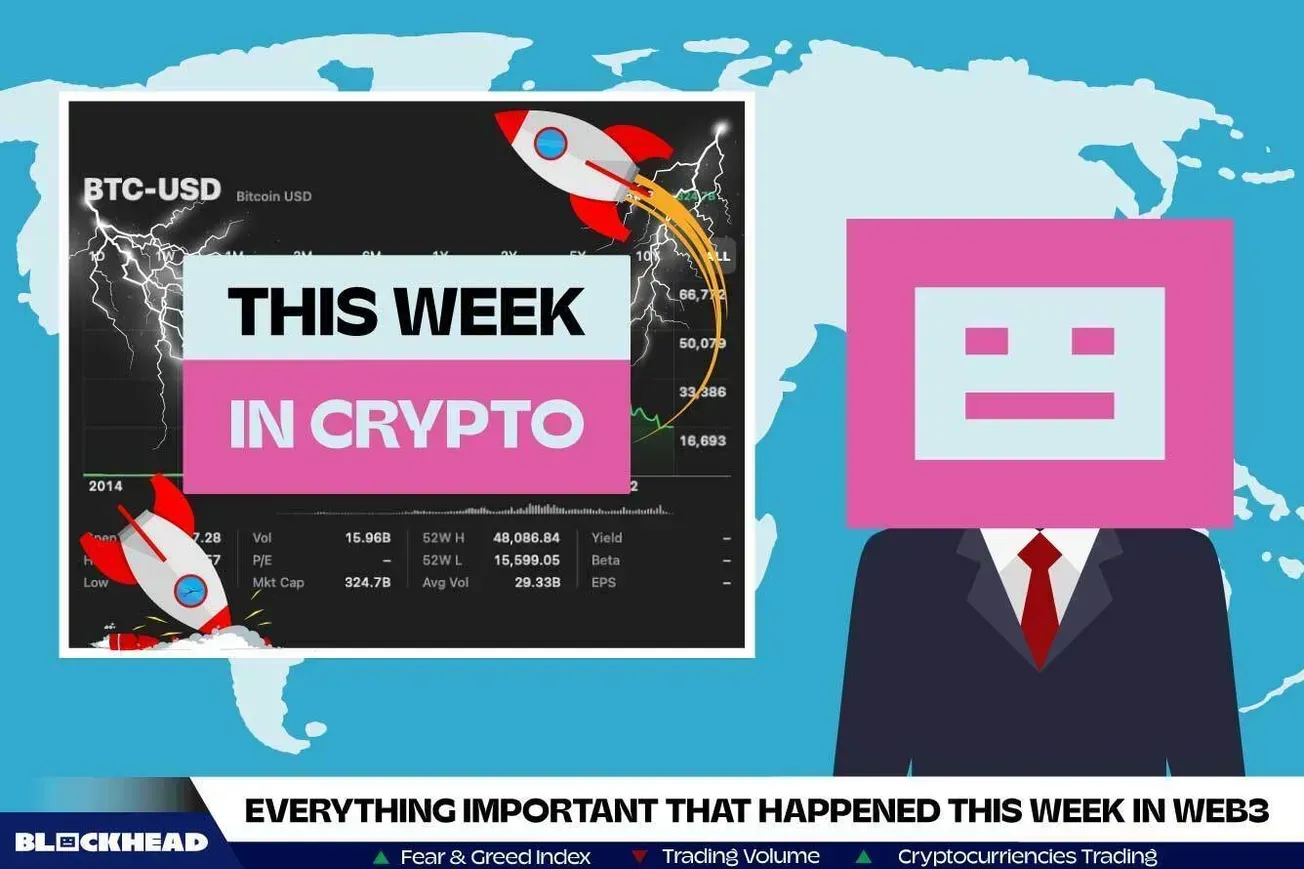Table of Contents
This newsletter offers a glimpse into the reports created by Blockhead's research arm, brn. To access more exclusive insights and in-depth analysis, register your interest at thebrn.co and our team will reach out to you.
The top crypto token is back up close to $71,000 after meandering in the early $60k rates for several weeks - and is not just another asset in the current rally.

First, Bitcoin surged in tandem with global stocks last week, although the pace of the token's rally was slower than the record run for most major equity indices.
Does that mean the so-called correlation between the top crypto token and tech stocks is back?
Yes, indeed.
Last week, the digital currency and the tech-heavy Nasdaq 100 index reached a new 90-day correlation coefficient high of 0.46 - a level not seen since late August.
When the coefficient is positive 1, the assets move together, while a value of -1 suggests that they move in opposite directions.
While it is widely accepted that Bitcoin behaves like a risk asset, the broader driver at this point is analysts' acceptance of the crypto token as a traditional asset.
This year, the Federal Reserve will pivot to easing monetary policy, which is the biggest driver of risk assets, and it is no different for Bitcoin.
While the renewed inflation rise denied the Fed any space to cut rates, price pressures have eased off, bringing Fed action back to the table.
As hopes for rate cuts resurface, proponents of the largest crypto compare it to high-growth assets like big tech company stocks.
In times of economic turmoil, the value of traditional assets tends to decline less relative to cryptocurrency. This is because investors flee riskier assets like cryptocurrency for more stable investments when market volatility is high.
Previously, speculative investments like Bitcoin fell in value more than traditional assets.
But that's not the case now; at least, that's what we have seen in the recent past.
While that goes against the basic correlation principle in financial markets, the opposite has been true for a few years.
The correlation between Bitcoin & tech stocks rose to above 0.8 in early 2022, the greatest level since the digital asset became widely known.
This came after the Fed raised its target rate on overnight lending between banks back then.
This year, the general bull trend is what is causing this correlation.
Bitcoin's potential as a new technology and a way of transferring capital implies it will be more closely linked to growth assets, such as tech shares, the Nasdaq, and similar things.
But the artificial intelligence (AI) space is driving Wall Street stocks.
The fact that the Dow is less concentrated on large technology companies makes last week's new milestone for the index all the more noteworthy.
So, Bitcoin, too, has emerged as an asset for investors in tandem with stocks.
In a development that is unusual and disproving of Bitcoin's value-storage hypothesis, a positive correlation has developed between the S&P 500 and Bitcoin since the start of this year.
Following the introduction of ETFs in January, Bitcoin's value experienced a remarkable surge, reaching an all-time high of approximately $74,000 in March.
However, as these investment vehicles' popularity declined, the value of cryptocurrency began to decrease.
On Friday, the token's price was a 1.4% surge, pushing it over $67,000.
This brought the week-to-date gain to almost 10%. This year's performance shows that the Nasdaq 100 has seen a modest 11% gain, while Bitcoin has risen nearly 58%.
The focus remains squarely on the macro angle for the rest of this year.
Even more specifically, Bitcoin moves will be determined by the Fed's rate path.
With inflation easing, bets have increased for the Fed to get its knives out as early as September, even as June & July meetings become live events.
While ETF flows have slowed significantly, there is growing speculation that the Chicago Mercantile Exchange (CME) would introduce spot bitcoin trading to take advantage of the increasing interest in the cryptocurrency market among Wall Street fund managers.
Traders interested in a regulated marketplace for purchasing and selling cryptocurrencies have been speaking with CME.
If the plan goes through, it will be a huge step for another reputable Wall Street business to enter the cryptocurrency sector.
What's also boosting digital assets is speculation the US Securities and Exchange Commission (SEC) will approve Spot Ethereum ETFs.
Amid mounting speculation that authorities are beginning to soften their stance towards licencing ETFs that invest directly in the second-biggest cryptocurrency, Ether, the price of the digital asset rose to its highest level in 18 months, up some 25% in the past 24 hours to sit at $3,666.71 at time of writing.

But not all are convinced the SEC will approve Ether funds as it did with Bitcoin in January.

brn's View
Bitcoin has broken through the $68,500 resistance level and is now trading above $71,000. This resistance had been a significant barrier for several weeks, and breaking it marks a strong bullish signal. With this breakout, Bitcoin is likely to pave the way for new highs. The potential for interest rate cuts towards the end of the year adds to the bullish sentiment, suggesting that Bitcoin could maintain its upward trajectory in the near term.

Bitcoin is now closing in on the $71,500 resistance level and breaking it could lead to a new all-time high. However, failing to break it despite the recent good news could exert downward pressure and push it back to a $68,500.










